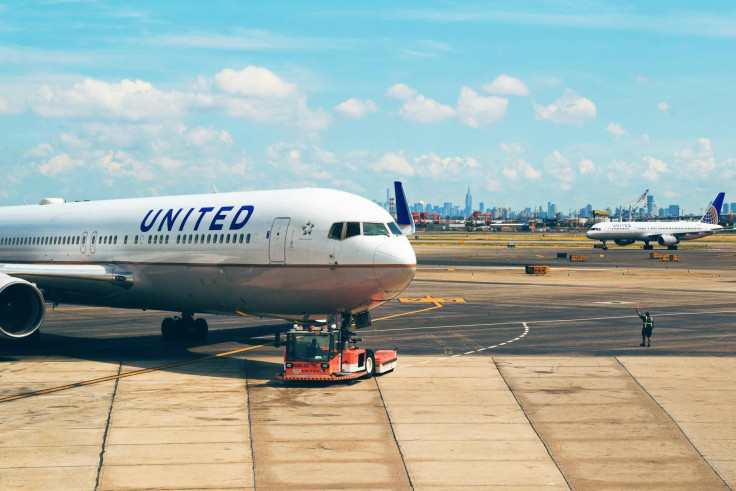US Airline Stocks Are Plummeting Amid Waning Demand—Is Now The Right Time To Invest?
Analysts recently slashed price targets for major airlines

US airline stocks, including Delta Air Lines, American Airlines, United Airlines, and JetBlue Airways, tanked by over 22% in March amid declining consumer confidence, tariff uncertainty, and border policies.
Fatal accidents, severe weather, the Los Angeles wildfires, recession fears, and a slump in government business are also factors that compelled several carriers to trim prices and available seating to compensate for falling demand. However, airlines haven't yet made major cuts, hoping the ongoing uncertainty will simmer down ahead of the peak summer season.
'I went into this year expecting it to be a blue sky year for airlines,' according to TD Cowen analyst Tom Fitzgerald. 'Now it's just kind of clouds everywhere, and it's unclear when they're going to dissipate.'
Reduced Corporate Travel Weighing Heavy on Airlines
While consumer confidence declined to a four-year low last month, analysts believe that a slump in corporate travel is a key factor hurting airline revenues. Uncertainty around tariffs and volatile border policies are leading automotive and defence companies to reduce business trips, which are typically booked closer to the time of travel.
Melius analyst Conor Cunningham said that government travel accounts for almost 2% of revenue for several carriers and has dropped by 50%.
Delta Air Lines is a preferred carrier for corporate travel, and analysts believe it faces a major challenge. Last month, the airline slashed its Q1 revenue growth guidance to 3% and 4% from 7% to 9% earlier. While CEO Ed Bastian recently said it has adjusted prices to lure more travellers, the airline isn't lowering capacity ahead of the summer season.
'They don't want to overreact and pull too much supply out of the market, and then things get back on track faster than they expect, and they miss out on the peak season,' Fitzgerald said.
Meanwhile, American Airlines is flying a smaller plane with fewer seats in the Washington, DC market. At the same time, Air Canada has somewhat lowered supply in the US-Canada cross-border market, the analyst added.
Elsewhere, United Airlines retired 21 aircraft that required engine upgrades but is waiting to lower supply until late summer at the earliest, CEO Scott Kirby said last month.
'Hope springs eternal, and it is the summer peak,' Kirby noted in a March conference. 'But by the time we get to August ... every analyst is going to be writing about the capacity cuts and the supply changes.' According to him, United Airlines plans to attract leisure travellers to compensate for a drop in business and government-related bookings.
Analyst Cunningham believes that if low corporate travel demand is prolonged, airlines like Delta will adopt a similar strategy to attract leisure travellers by trimming ticket prices and enabling bookings for later dates.
'This whole industry works when everyone's in their own lane,' Cunningham said. 'It's a net negative for the overall industry when something like that is happening.'
Volatility Over the Next Few Months
TD Cowen trimmed its Q1 profit outlooks for American Airlines, Delta Air Lines, United Airlines, and Sun Country Airlines after they recently offered insights into their near-term projections. The brokerage also cut its stock price target for American Airlines, Delta, and United Airlines to £20.09 ($26), £63.37 ($82), and £115.93 ($150), respectively.
'We expect the sector to remain volatile over the next 8-10 weeks,' Fitzgerald said. 'Investors will be watching for greater clarity on the direction of US trade policy from here, the state of the broader economy and employment, as well as key industry metrics such as pricing, peak season bookings.'
However, analysts increased their Q1 estimates for Southwest Airlines and JetBlue Airways, expecting the companies to narrow losses compared to earlier estimates.
Fitzgerald noted that it has been a 'frustrating period' for US airlines since late January, and demand has not materialized despite the airlines' efforts to capitalize on higher last-minute fares by holding seats back.
'They are now selling earlier in the booking curve for [Q2] and beyond,' Fitzgerald said. 'This will result in lower average fares all else equal, but generating revenue is better than inventory spoiling.' He concluded that elevated trade tariffs could also impact the airline industry in the coming quarters.
Disclaimer: Our digital media content is for informational purposes only and not investment advice. Please conduct your own analysis or seek professional advice before investing. Remember, investments are subject to market risks and past performance doesn't indicate future returns.
© Copyright IBTimes 2025. All rights reserved.






















